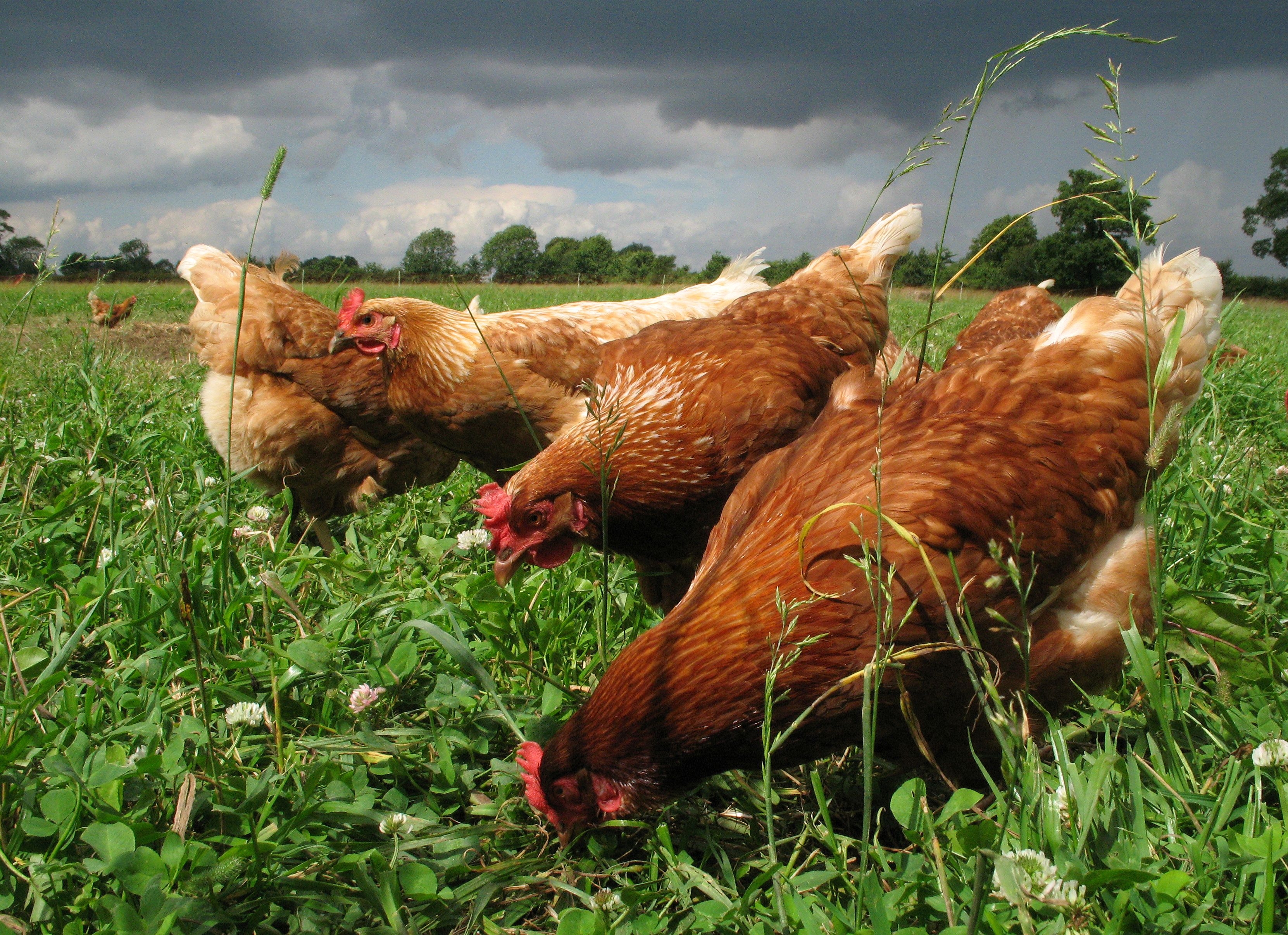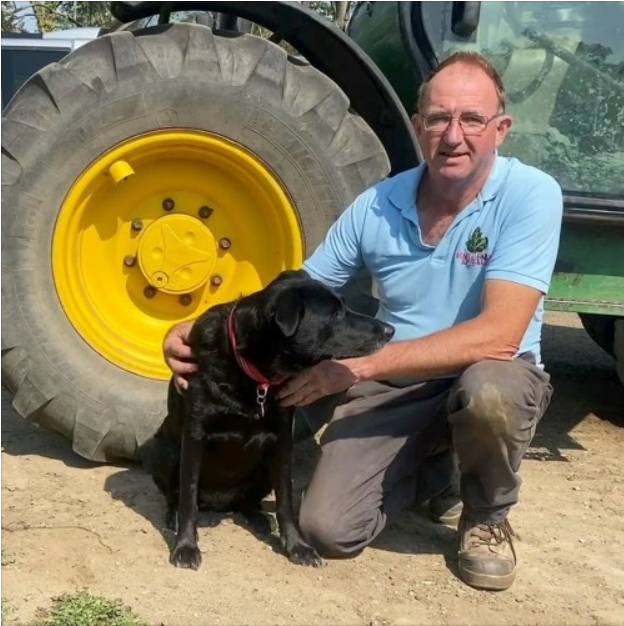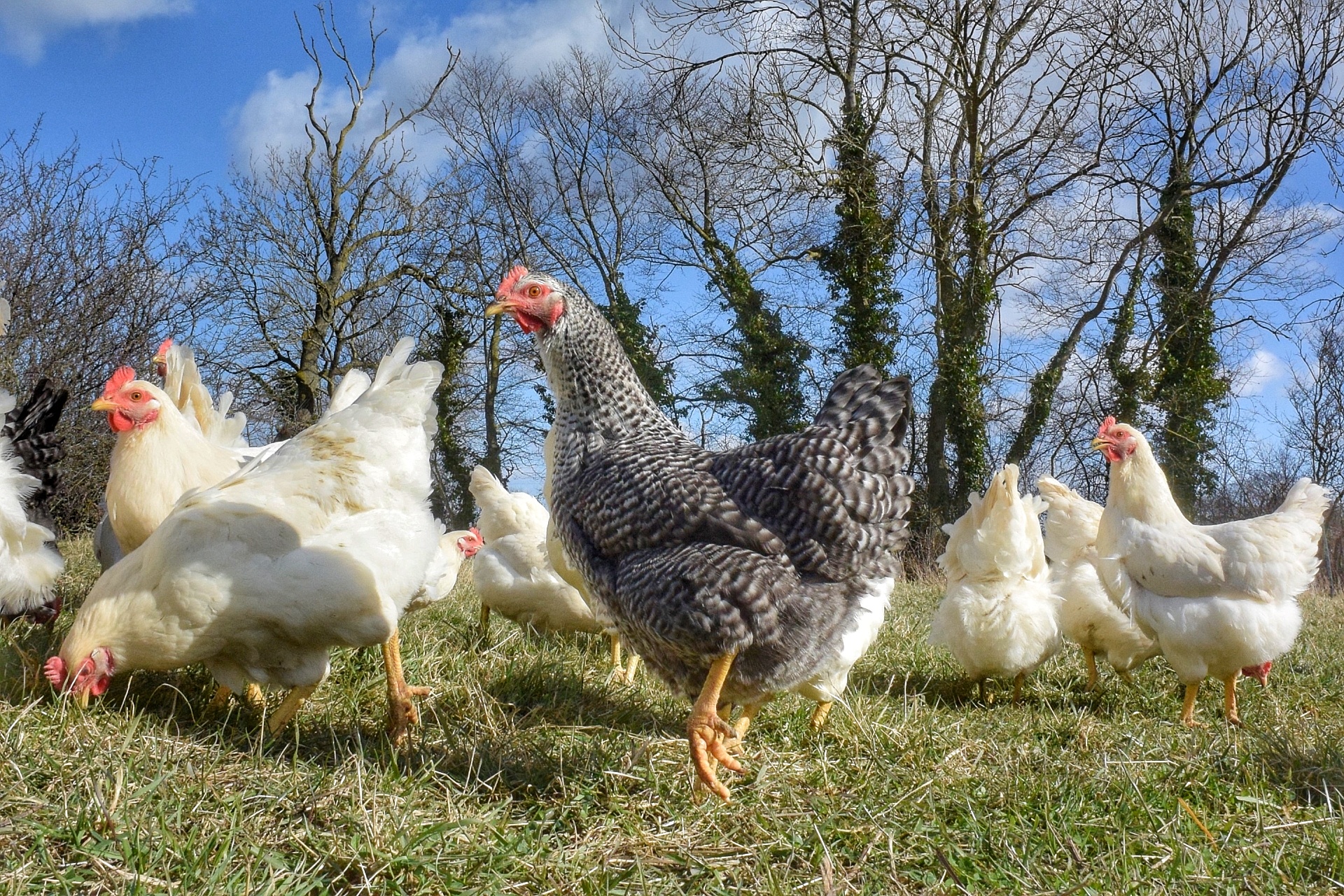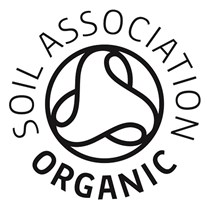- Soil Association
- Certification
- Farming
- Meet our licensees
- Mike Mallet, Maple Farm

Mike Mallet - Maple Farm
Mike Mallett manages Maple Farm, a 137-hectare mixed farm in Suffolk, comprising of arable land, a laying hen enterprise, and market garden with woods, ponds and stewardship areas.
The farm converted to organic in 2004 and is run on a 5-year rotation, using an organic, regenerative approach.

Maple Farm supplies home-branded eggs to London markets, local delis, Co-op and Waitrose stores. The farm also hosts it’s very own mill to produce flour to sell to customers and to other bakers, also enabling them to also produce their own feed for the hens. The agroforestry includes native trees, fruit trees and areas for biomass cropping, plus a traditional orchard and nut plantation.
A steep learning curve
With a background in both conventional and organic farming, Mike joined Maple Farm in 2012 and quickly found that it was possible to farm without using synthetic fertilisers, insecticides and fungicides by embracing organic, regenerative farming practices.
This included a varied crop rotation, cover crops, diversity of cropping and effective poultry management.
Since 2012, Mike has increased the number of hens from approximately 1,000 hens to 3,000 hens, running a number of small flocks to ensure a year-round, consistent supply of eggs to customers.

Effective poultry management
Mike operates a pasture-based laying hen system to maximise egg quality, hen welfare and soil health.
He explains that the key to achieving sustained grass cover is a low stocking rate, moving the sheds regularly and choosing a hardy breed: “We dropped our stocking density to 250 birds per hectare which enabled us to provide grass, year round within walking distance of the sheds.
"Previously, at 500 birds per hectare, the fields would need to be resown in spring which involving a great deal of work. Dropping the stocking rate has had huge benefits to health, feather condition, mortality and general happiness of the birds. This was surprising as we imagined these welfare outcomes would be linked to the stocking rate within the house, but this shift was linked with stocking rate on the range.”
Mike moves the sheds every three weeks to fresh pasture to maintain grass cover. This, alongside a lower stocking density, ensures that the grass recovers quickly, and the soil remains covered which is important for soil health and carbon storage. Movement of sheds significantly improves rodent control too, as it prevents rats from setting up a permanent colony.
Mike added: “Moving the sheds regularly also prevents a huge build up of manure and ensures better egg quality due to the quality of grass and herbs, such as lucerne and clover, on the range, giving an improved flavour.”
Mike’s biggest challenges include the weather commenting that: “It can still get muddy very quickly but this is minimised now.” He says: “My key advice to new entrants to the industry is to set up sheds properly in the outset as this can be quite expensive.”
Soil is everything – it is fundamental to the whole system. We have started monitoring soil health over the last few years and have seen visible benefits in soil health, colour and fertility.Mike Mallet, Maple Farm
Trialling home-grown feed
The farm’s philosophy is to produce the majority of its own feeding requirements. Producing soya-free chicken feed is one of Mike’s main ambitions and he’s not far off achieving this, with soya making up just 5% of the feed ration for his hens.
Over the years, Mike has experimented with alternative protein sources and has incorporated legumes, such as vetch, peas and beans, into his arable rotation.
He explains: “Vetch for instance, is not only important for fixing nitrogen, and improving soil structure, when intercropped with oats and rye, yields well as a feed crop.”
However, pulses naturally contain antinutritional factors which can affect the digestive system of the birds and high quantities can be toxic.
Sprouting, soaking and heating pulses are ways in which this can be reduced, so Mike’s been involved with an IF field lab that explored sprouting wheat and vetch grains. The result: a feed source which doesn’t compromise on protein, omega-3, and mostly importantly is palatable to the birds, who have been partial to a grateful ‘mobbing’ of their new feed.
Mike says: “Nothing goes to waste at Maple. It’s home to a traditional flour mill, processing ancient home-grown varieties of wheat, spelt and rye for customers, whilst left-over middlings and bran provide a handy hen feed too.”

Improving the environment
Mike champions an organic, regenerative approach to improve the farm environment.
He explains: “Soil is everything – it is fundamental to the whole system. We have started monitoring soil health over the last few years and have seen visible benefits in soil health, colour and fertility. We are achieving this by adopting regenerative farming practices, including a varied crop rotation, cover crops such as lucerne and clover leys, diversity of cropping and the inclusion of livestock.”
Mike is a firm believer in having as many flowering plants on the farm as possible to improve biodiversity and natural predation and Maple Farm is one of the early pioneers of agroforestry, with over 100 acres of trees on site.
“Those trees play a valuable multi-dimensional role” says Mike, “providing firewood and producing fruit and apples, giving shelter to the hens and encouraging them to range whilst providing habitats for birds, bugs and storing carbon too.”
He feels weeds are important and has embraced how they can be used to benefit the soil and wildlife. There is still plenty of do and looking forwards Mike will continue to trial innovative ideas, such as growing meal worms for his chickens.
-
Find out more about going organic on your farm
Get in touch
Find out more about going organic on your farm
Find out moreHear Mike speak on Farming Today
Listen to the programmeHear from other organic farmers
- Falkland Kitchen Farm
- Langford Farm
- Nick Padwick - South Pickenham Estate
- Bengrove Market Garden Smallholding
- Cairn Hill 700 Ha. Scottish Sheep & Cattle Farm
- Belmont Estate Beef, Pork & Lamb Farm
- Oxney Estate Vineyard
- Chapel Farm - Arable
- Sandy Lane Farm - 40 hectare mixed farm
- RB Organic - vegetable farm
